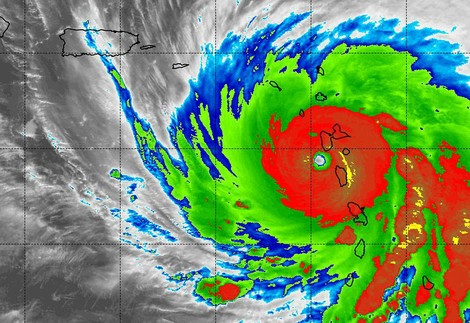Your podcast discovery platform
Curious minds select the most fascinating podcasts from around the world. Discover hand-piqd audio recommendations on your favorite topics.

piqer for: Climate and Environment Global finds Globalization and politics
I'm a freelance journalist, currently based in Madrid. I used to be a News Producer at CNBC in London before, but I thought a little bit more sun might do me good. Now I write for several news organizations, covering a range of topics, from Spanish politics and human rights for Deutsche Welle to climate change for La Marea.
What Science Budget Is Worth (Spoiler: Lives)
It's hurricane season. We have already beaten quite a few records: Harvey in Texas and Louisiana, and Irma along the Antilles and Cuba's North Coast, have sown devastation without precedents. As I write this, Puerto Ricans are bracing up for the potentially catastrophic landfall of Maria.
I happened to be in Cuba last week, when Irma brushed the island. I noticed the population's reverence towards head meteorologist José Rubiera. "He's the best. He would even tell Fidel what's what," said the owner of a house I was renting a room at.
For Cubans and other populations of the Caribbean, accurate forecasts mean the difference between life and death, and when I heard Rubiera, I understood the hype. He could really make people understand what was dangerous and what was not, while keeping calm and avoiding unnecessary alarm. Following different models (Cuban, European and American), he gave an accurate idea of how to save one's life.
As climate change warms the oceans, the old models are becoming outdated. Warmer waters mean better fuel for superstorms, so ocean and hurricane research are crucial to understanding the paths of these monsters. Millions of lives depend on it.
This article asks a crucial question: As we dive deeper into the effects of global warming, are we investing enough in understanding how they affect hurricane behaviour?
Global warming is changing the very structure of the ocean, including the way different temperature layers mix. That mixing is also important to the evolution of hurricanes.
The US is cutting down on its science research budget, which will reduce the chances to learn key information on these events. European models are, indeed, the best right now, but there's still a lot to do.
This article is, as usual for ICN, really well researched and sourced. It provides an excellent argument against those who defend cutting back on space exploration and exploratory science budgets.
There are life-threatening forces that can only be averted by knowledge. Here are some.

good piq! thanks for that, santi. cheers to josé rubiera, too.